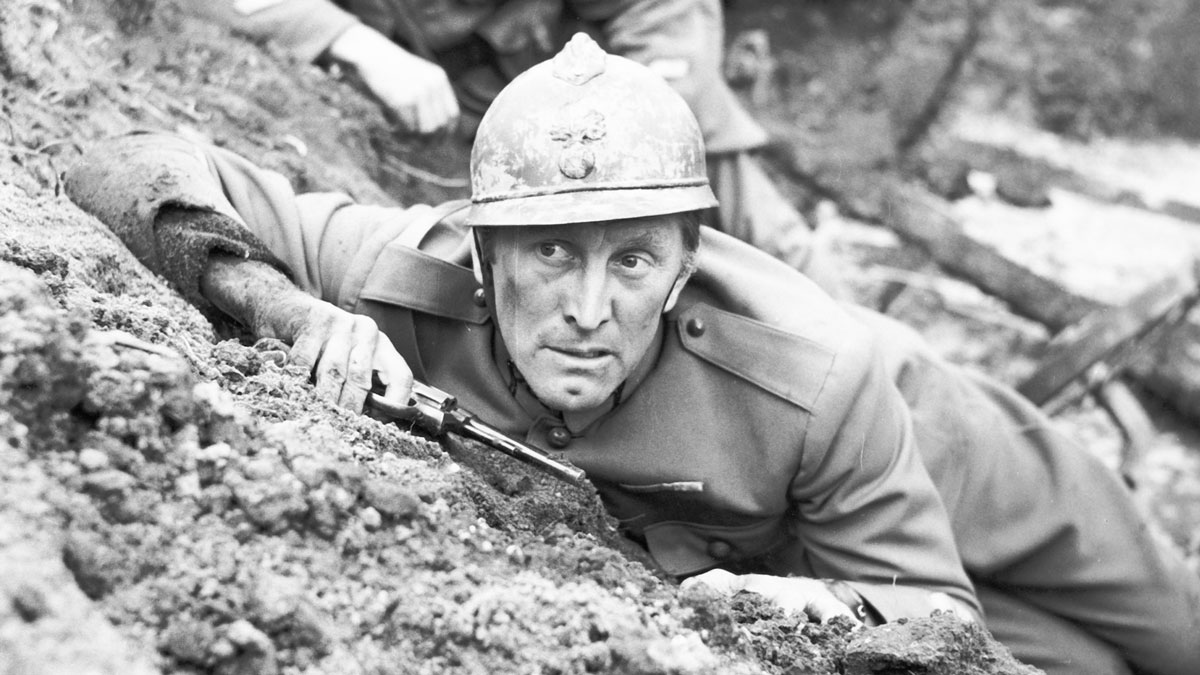
© 1957 Harris Kubrick Pictures Corp. All Rights Reserved. © 2019 Metro-Goldwyn-Mayer Studios Inc. All Rights Reserved.
"Paths of Glory" Stanley Kubrick's emotional anti-war film
2021.02.09
"Paths of Glory" synopsis
1915, the front lines of World War I. General Brullard of the French army orders General Millau's division to launch an all-out attack in order to break down the strong German army camp known as "Anthill." However, although Milo's subordinate Colonel Dax objects to this reckless attack plan, the operational order is not overturned. When the operation begins, Colonel Dax fights at the head of his soldiers, but his advance is blocked by the enemy's fierce attack and he is forced to retreat.
Index
- The scenario that Kirk Douglas fell in love with
- Kubrick's extraordinary perfectionism
- Emotional touch that is not typical of Kubrick
The scenario that Kirk Douglas fell in love with
"There are movies that are good no matter how many years pass. You don't have to wait 50 years to find out."
This is Kirk Douglas' comment on ``Paths of Glory'' (57), in which he starred. It may seem a bit self-congratulatory, but perhaps it should be seen as an honest expression of reverence for Stanley Kubrick rather than a celebration of one's own accomplishments. In fact, even now, more than 50 years after this film was released, ``Paths of Glory'' remains in film history as one of the great achievements of war movies.
Let's turn the clock back to the '50s. Kubrick, who made his Hollywood debut with `` PUT YOUR BODY IN CASH '' (1956), was attracting attention from the film industry at the time. Dore Schary, who was the chief of production at MGM, was one of them. He hired Kubrick, gave him all the scenarios and original books that had piled up at his office, and gave him strict orders to write the script.
"Paths of Glory" preview
Kubrick set his sights on Humphrey Cobb's ``Pathway to Glory,'' published in 1935. This is an anti-war novel based on the true story of a French soldier being unfairly executed by a military tribunal during World War I. Immediately after its publication, George Stevens, the director known for `` Shane '' (1953) and `` Giants '' (1956), was also considering adapting the novel into a film. However, with World War II on the horizon, the studio did not want to take the risk of making an anti-war film, so the project was ultimately shelved.
Kubrick, who had loved reading this novel in high school, enthusiastically presented Dore Schary with the idea of making ``Pathway to Glory'' into a film. But Shari did not shake her head vertically. The story is dark and gruesome, and no matter how you look at it, it's unlikely to be a commercial success. To be fair, it can be said that Dore Sharry's judgment was perfectly correct.
But Kubrick is not convinced. Frustrated, he approaches actor Kirk Douglas with a project. Kirk Douglas, who became a star actor after starring in `` Champion '' (1949), for which he was nominated for the Academy Award for Best Actor, was also a producer with his own production company, ``The Bryna Company.'' He fell in love with the script after reading it and said to Kubrick these words:
"Stanley, I don't think this movie will make any money, but it has to be made."

